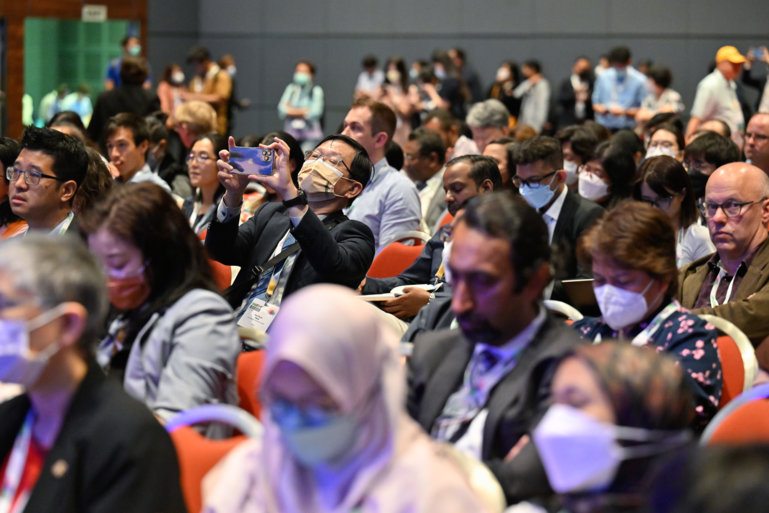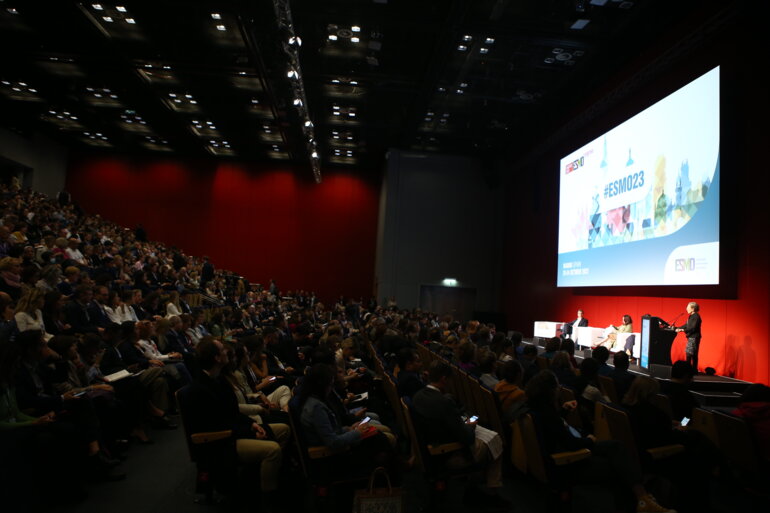Differences in cancer population, local expertise, availability of and accessibility to treatments are incorporated into two new Pan-Asian adaptations (PAGA) of the ESMO Clinical Practice Guidelines
The incidence of endometrial and metastatic breast cancers is rising in Asia, particularly in premenopausal women (Medicine (Baltimore). 2018;97:e12968; JAMA Oncol. 2019;5:1489–1496), and this requires an adjustment of how these malignancies are managed to local evidence. From the collaboration between ESMO and experts from ten national oncology societies in Asia, two new Pan-Asian Adaptations (PAGAs) of the ESMO Clinical Practice Guidelines in these settings have been developed and presented at the ESMO Asia Congress 2022 (Singapore, 2-4 December).
The rise in endometrial cancer in some Asian countries may be due to evolving lifestyle, lower fertility rate and lack of gynaecological surveillance (J Gynecol Oncol. 2019;30:e38). According to Prof. Smruti B. Koppikar from the Lilavati Hospital and Research Centre and Bombay Hospital Institute of Medical Sciences, Mumbai, India, lack of molecular testing capabilities is a key example of how endometrial cancer is managed differently in some Asian countries compared to Europe. “Publication of The Cancer Genome Atlas analysis (Nature 2013;497:67–73) and categorisation based on POLEmut, dysfunctional/deficient mismatch repair genes (dMMR), p53 mutations and ‘no specific molecular profile’ is both prognostic and important for adjuvant treatment decisions and tailoring therapy,” she says. “However, because of variable availability of expertise and infrastructure for carrying out molecular typing in Asian centres, the guidelines have been adapted to permit flexibility in therapeutic decision-making and to allow traditional factors to be used in the absence of molecular subtyping.” Similarly, modifications were made to some recommendations in the ‘parental’ ESMO Clinical Practice Guideline in endometrial cancer published in 2022 (Ann Oncol. 2022;33:860–877) regarding the use of sentinel lymph node excision and the use of immune checkpoint inhibitors to accommodate variable access to surgical expertise and drug availability, respectively, in Asia.
Among 21 global regions in 2019, East Asia had the highest number of breast cancer incidence cases, while South Asia, East Asia and Southeast Asia had the highest disability-adjusted life-year burden (Front Oncol. 2021;11:689562). “Patients from Asia have a higher incidence of luminal B disease than Western counterparts, which is characterised by a worse prognosis and resistance to endocrine therapies. In this context, lack of access to new therapies is a real issue,” explains Prof. Seock-Ah Im from Seoul National University Hospital, Republic of Korea, who contributed to the ‘parental’ guidelines in metastatic breast cancer published in 2021 (Ann Oncol. 2021;32:1475–1495) and is first author of the corresponding PAGA.
The CDK4/6 inhibitor ribociclib is not available in China and Japan, limiting treatment choices for premenopausal women with HR-positive HER2-negative advanced or metastatic breast cancer, although abemaciclib and palbociclib are available. However, in some Asian countries, abemaciclib or palbociclib can only be used in postmenopausal women or premenopausal patients who received bilateral oophorectomy. Lack of availability of the PI3K inhibitor, alpelisib reduces options for patients with PIK3CA-mutant tumours. Furthermore, the pan-HER kinase inhibitor, tucatinib has not been approved in most Asian countries due to lack of data in Asian patients. “Approved indications for trastuzumab deruxtecan are currently limited in Asia compared with other countries, but are increasing,” continues Seock-Ah Im. “Given that many Asian experts have contributed to its clinical development, we hope for more approvals soon.” And she notes, “Data on trastuzumab deruxtecan from the pivotal phase III DESTINY-Breast04 trial (N Engl J Med. 2022;387:9–20) were published after the ‘parental’ guidelines, so they have now been incorporated into a new recommendation in the PAGA.” A recommendation for the TROP-2 antibody-drug conjugate, sacituzumab govitecan, has been amended as it is only currently available in China and Singapore.
The development of PAGAs in different disease settings has proved to be of added value to some countries where de novo development of guidelines is not feasible because of lack of time, expertise and resources, and thus adaptation, such as customising high-quality existing guidelines to the local context is a valid alternative. Early stages of the ESMO PAGA project date back to 2016 when at the ESMO Asia Congress it was agreed by ESMO and the Japanese Society of Medical Oncology (JSMO) to convene a special guidelines meeting, endorsed by both societies. Today, the project involves an additional nine national oncology societies from Asia – the Chinese Society of Clinical Oncology (CSCO), the Indian Society of Medical and Paediatric Oncology (ISMPO), the Indonesian Society of Hematology and Medical Oncology (ISHMO), the Korean Society of Medical Oncology (KSMO), the Malaysian Oncological Society (MOS), the Philippine Society of Medical Oncology (PSMO), the Singapore Society of Oncology (SSO), the Taiwan Oncology Society (TOS) and the Thailand Society of Clinical Oncology (TSCO).
Don't miss:
Practicing oncology across the globe: ESMO Clinical Practice Guidelines and Pan Asian adaptations
ESMO Guidelines Session 02.12.2022, h. 16:15 – 17:45, Summit 2. Also watch the session on the Congress virtual platform.






